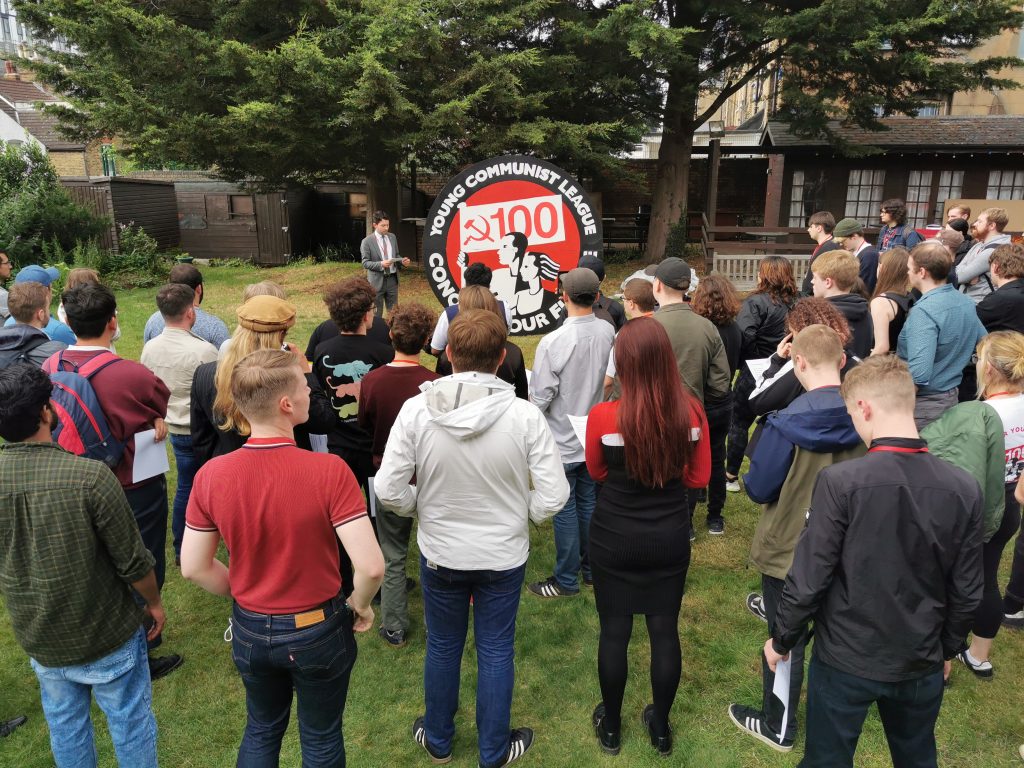Any serious communist movement must establish and maintain a revolutionary youth organisation. However, the role of such an organisation has at times been open to question. Most of the classic Marxist texts on the role of the youth were written during the early stages of the construction of socialism, whereas Marxist writers under capitalism have tended to ignore, or overemphasise, the specific role of youth and student organisations.
A revolutionary youth organisation is essential because of the role it plays in sustaining the communist movement. The young communists of today represent the future of the movement, politically, ideologically and practically. In this sense, a key role, possibly the key role, of the youth league is to prepare the communists of tomorrow. But how is this to be done?
In a speech to the Russian YCL, Lenin wrote that “the tasks of the youth in general, and of the Young Communist League and other organisations in particular, might be summed up in a single word: learn”.
Similarly, speaking to the Cuban Communist Youth Union on the second anniversary of its formation, Che Guevara argued that, “study at all levels is also a task of today’s youth”.
If this was important when establishing socialism, it must be doubly so during the struggle against capitalism, when the development of cadres to continue the struggle is the only way to safeguard the future of the revolution.
Yet, how are we to study? What are we to learn? Lenin and Guevara both begin from the principle that communist study, Marxist political education, must be grounded in practical work, as well as theory. Marxists must constantly be putting their studies into practice and learning from the outcomes of that practice.
In the context of the revolutionary youth organisation, this means that it must develop both a coherent and systematic programme of political education from a theoretical perspective, and engage in practical political struggle. These two must be intertwined so as to develop cadres who can combine sound theoretical knowledge with practical experience. Whilst this unity of theory and practice is essential to any communist organisation, it is even more important for an organisation whose primary aim is to develop the communist activists of the future.
Lenin is also at pains to emphasise that this learning must not be limited to communist pamphlets and slogans. Of course it is important to have an understanding of communist thought but a real political education must go beyond this. It has to encompass what Lenin refers to as “the wealth of knowledge amassed by humankind”.
Alongside this broad, practical, political education, young communists must also acquire the skills, and the confidence, to put this knowledge into practice by applying it to different situations, by drawing conclusions and acting on them to test their validity.
That this will, in some cases, lead to mistakes is inevitable but a communist movement cannot be built on the basis of activists who are only able to follow and not to lead. Every cadre must be capable of independent theoretical and practical work and of fully engaging with the political discussion that determines the Party line.
In terms of the practical political work which is taken on, there will be some issues which are specific to young people and where it is appropriate for the revolutionary youth organisation to take a lead. But the work of the Young Communist League must not be limited to these issues.
If the aim is to develop fully-rounded communists, the league must be active on all aspects of policy and in all areas of politics. In particular, it is essential that the revolutionary youth organisation maintains a direct and organic link to the broader working class organisations, not just those of the youth.
It is this combination of broad political work and systematic political education, united in the day-to-day functioning of the revolutionary youth organisation, which will produce the youth activists of today and the communist cadres of tomorrow.



